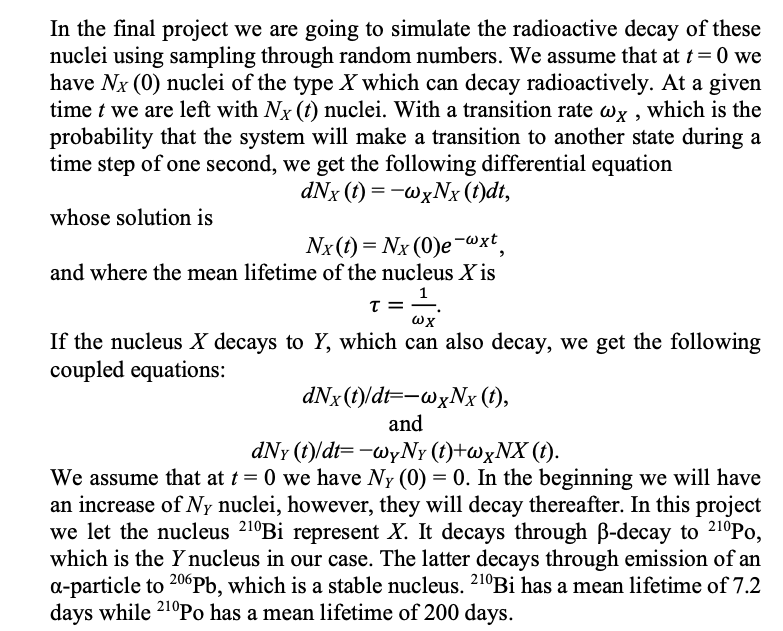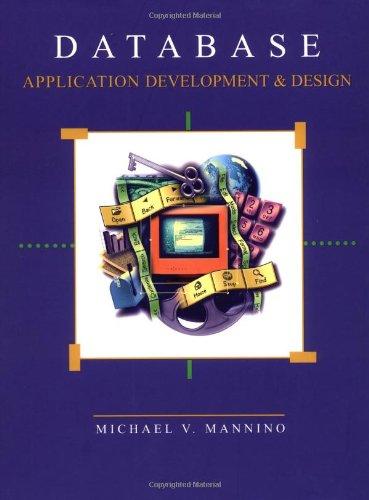Answered step by step
Verified Expert Solution
Question
1 Approved Answer
Any language is fine In the final project we are going to simulate the radioactive decay of these nuclei using sampling through random numbers. We


Any language is fine
In the final project we are going to simulate the radioactive decay of these nuclei using sampling through random numbers. We assume that at t=0 we have NX(0) nuclei of the type X which can decay radioactively. At a given time t we are left with NX(t) nuclei. With a transition rate X, which is the probability that the system will make a transition to another state during a time step of one second, we get the following differential equation whose solution is dNX(t)=XNX(t)dt, NX(t)=NX(0)eXt, and where the mean lifetime of the nucleus X is =X1. If the nucleus X decays to Y, which can also decay, we get the following coupled equations: dNX(t)/dt=XNX(t),anddNY(t)/dt=YNY(t)+XNX(t). We assume that at t=0 we have NY(0)=0. In the beginning we will have an increase of NY nuclei, however, they will decay thereafter. In this project we let the nucleus 210Bi represent X. It decays through -decay to 210Po, which is the Y nucleus in our case. The latter decays through emission of an -particle to 206Pb, which is a stable nucleus. 210Bi has a mean lifetime of 7.2 days while 210 Po has a mean lifetime of 200 days. 2. Make a program which solves the above equations employing in-situ Monte Carlo simulations (we should compare the transition rates with random numbers). Compare the results from your program with the exact answer as function of NX(0)=1000. Make plots of your resultsStep by Step Solution
There are 3 Steps involved in it
Step: 1

Get Instant Access to Expert-Tailored Solutions
See step-by-step solutions with expert insights and AI powered tools for academic success
Step: 2

Step: 3

Ace Your Homework with AI
Get the answers you need in no time with our AI-driven, step-by-step assistance
Get Started


